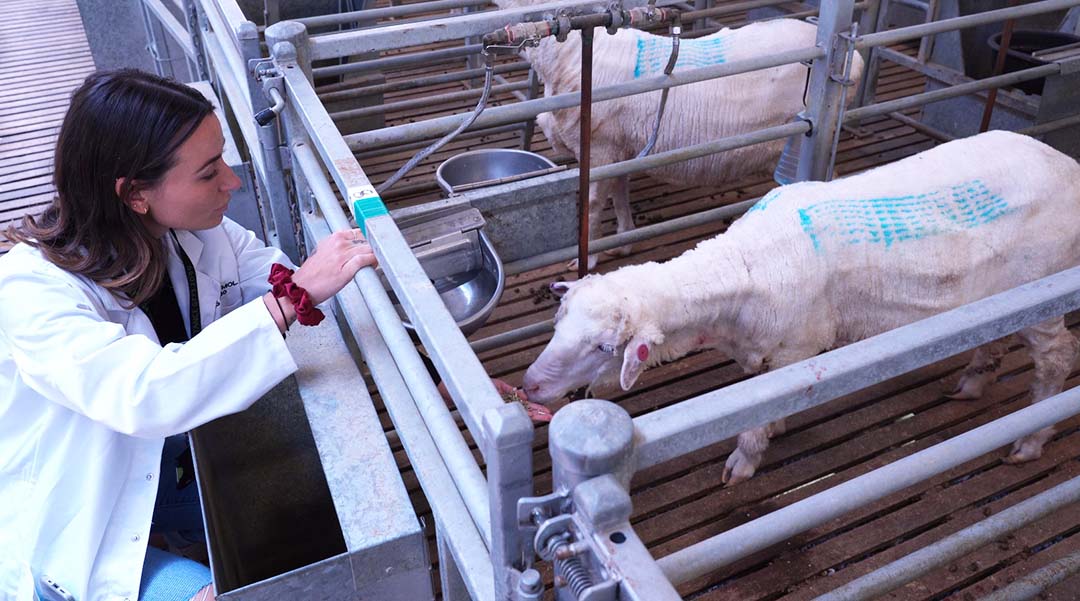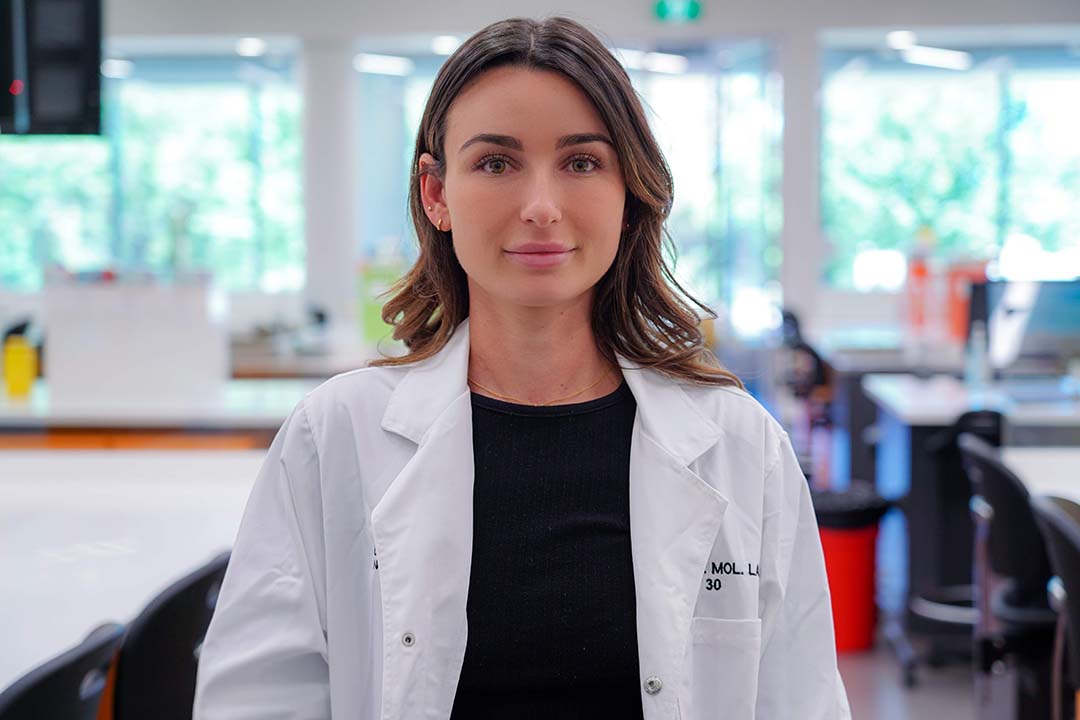With sheep parasites costing the Australian livestock sector more than $450 million per year, University of New England PhD candidate Vanessa Sewell is on the way to finding a solution.
She’s developing the technology needed to create a sustainable and affordable vaccine that could protect livestock from internal parasites, and it's a project that's seen her recognised on a national level.
Today, Vanessa was named as one of five people across the country to receive the 2022 Australian Academy of Science Aboriginal and Torres Strait Islander Scientist Award.
For the first time, my work is being recognised by my peers, and I’m able to represent my Aboriginal mob in science on a national stage.
“I am honoured and very excited about this opportunity,” says the Worimi woman.
“For the first time, my work is being recognised by my peers, and I’m able to represent my Aboriginal mob in science on a national stage."
As the global population rises, the demand for food increases, which Vanessa says leads to more intensive farming practices and a higher risk of disease.
She says another vaccine is sorely needed to minimise the threat to livestock and farming families.
“There’s currently three major gut parasites in Australia, and we only have a vaccine for one of them, which is the barber’s pole worm,” she says.
“My project is developing the technology needed to create a vaccine to reduce the risk of the other two types of parasites, scour worms and brown stomach worms.”
The technology that Vanessa is developing is called a worm cell expression system, which will give scientists the ability to mass-produce worm antigens, which can then be used in what is called a recombinant antigen vaccine.
This eliminates the need for donor lambs, which Vanessa says will lead to a more sustainable solution than the current vaccine for the barber’s pole worm.
The technology that I am creating doesn’t require donor lambs, which will result in a clean, green and sustainable vaccine, improving animal welfare and helping our farming families in developing nations.
“The production of the decorated worm proteins for the existing vaccine requires approximately three donor lambs to protect one sheep, which is not sustainable,” she says.
“The technology that I am creating doesn’t require this, which will result in a clean, green and sustainable vaccine, improving animal welfare and helping our farming families in developing nations.”
If successful, Vanessa says the expression system could play a much larger role in animal science than just protecting sheep against the three major gut parasites.
“Once it’s developed, the expression system could be used to make recombinant vaccines against any parasite, whether it be for livestock, for animals, or even medical research,” she says.
“For example, it could be used to create a vaccine protecting humans against certain parasites, which would be a gamechanger for those living in developing countries where parasites in humans are more common.”
As part of the award, Vanessa has been awarded up to $7,500 to go towards enhancing her research, which she says will open up an array of opportunities.

“I’m planning to visit the University of Sydney, the Moredun Research Institute, and the University of Glasgow in Scotland to work with leading scientists in the parasitology field," says Vanessa.
"I’ll also get the opportunity to present my research on the world stage at the International Congress of Parasitology in Denmark.
“This scholarship will allow me to work with scientists all over the world, and I hope these international collaborations will enhance my career as a researcher.”
You can read about the other recipients from across Australia here.


